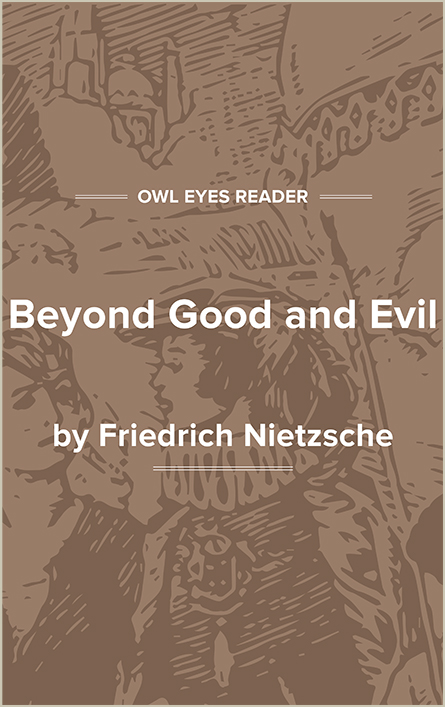Study Guide
Friedrich Nietzsche Biography
Article abstract: Though mostly ignored during his lifetime, Nietzsche’s writings became a bellwether in the twentieth century for radical philosophical, psychological, linguistic, and literary critiques of Western culture. Through a series of remarkable works of German prose, Nietzsche sought to smash the idol of Christian morality and liberate a few who might follow after him into a triumphant and tragic this-worldly life.
Early Life
Friedrich Wilhelm Nietzsche—named for the reigning king of Prussia, Friedrich Wilhelm IV, whose birthday was also October 15—was born in a parsonage. His father, Karl Ludwig Nietzsche, was a Lutheran pastor; his mother, Franziska Nietzsche (née Oehler), was the daughter of a Lutheran pastor. The union produced two other children, Elisabeth in 1846 and Joseph in 1848, who died shortly before his second birthday.
After the death of his father in 1849, Friedrich Nietzsche spent most of his early life surrounded by women: his mother, his sister, his paternal grandmother, and two maiden aunts. The family moved in 1850 to Naumburg, in Thuringia, where the young Nietzsche attended elementary school and a private preparatory school. In 1858, he entered Germany’s most renowned Protestant boarding school, the Schulpforta, on a scholarship. There he met Paul Deussen, also a student, who became one of his few lifelong friends; Deussen found Nietzsche to be deeply serious, “inclined to corpulence and head congestions,” and extremely myopic.
Nietzsche graduated from the school at Pforta in 1864 with a classical education; that same year, he entered the University of Bonn to study theology and philology, the latter under Friedrich Wilhelm Ritschl. Unable to fit into the rowdiness of student life at Bonn—despite entertaining students on the piano—Nietzsche abandoned any pretense of theological studies and transferred in 1865 to the University of Leipzig, where his friend Ritschl had gone. Writing to his sister Elisabeth about his abandonment of the Christian faith, Nietzsche told her that he had become a disciple of the truth, wherever it led; he could not be content with a religious happiness. That same year, the serious Nietzsche told Deussen that a recently published “life of Christ” by David Strauss was disingenuous in its removal of the miraculous Christ from the Gospels while holding on to his precepts. “That can have serious consequences,” said Nietzsche; “if you give up Christ you will have to give up God as well.”
The year 1865 was remarkable for two other reasons. As Deussen later wrote, Nietzsche had told him that a street porter, asked to take him to a restaurant in Cologne, instead had delivered him to a brothel. Speechless, Nietzsche soon left. Deussen speculated that his friend remained a lifelong virgin. There is much scholarly debate on the subject, but it seems likely that Deussen was wrong. Because there is no indication in Nietzsche’s correspondence that he ever had sexual relations with a woman of his own class, it is probable that in 1865 or later Nietzsche acquired syphilis at a brothel. Early in 1889, he would collapse into insanity.
It was in 1865 that Nietzsche encountered the works of the pessimistic philosopher Arthur Schopenhauer, and though Nietzsche was later to renounce his allegiance to Schopenhauer’s perspective and his anti-Semitism, by late 1865 he had announced that he had become a follower. The Leipzig years, from 1865 to 1869, saw Nietzsche taken under Ritschl’s wing as his protégé, the development of his friendship with Erwin Rohde, and the entrance of composer Richard Wagner into Nietzsche’s life. After hearing Wagner’s music in 1868, Nietzsche became a convert; meeting with the composer that same year, Nietzsche found that Wagner, too, loved Schopenhauer. Nietzsche would one day reject Wagner as he would Schopenhauer.
Nietzsche entered into the cavalry company of an artillery regiment in October of 1867, but in March of the next year...
(The entire page is 2,562 words.)
Owl Eyes subscribers get unlimited access to our expert annotations, analyses, and study guides on your favorite texts. Master the classics for less than $5/month!

